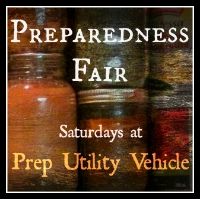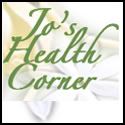Emergency Preparedness – Depression and Anxiety

What if access to medication and medical care is denied?
So in my previous post, Emergency Preparedness, I was wondering how people on prescribed medications would handle an emergency situation if access to medication and medical care is denied. As I mentioned in the same post, I'm not a gloom and doom person but it is a concern when so many people are on prescribed medications. We have experienced so many natural disasters here in our country and around the world in recent years, these disasters caused a lot of trouble and many people had to wait days before they could get any help. It is not possible to stockpile prescribed medication so many people will be suffering if access is denied to medicine and medical care. For some it could be fatal.
It's time to start taking charge of your own health now! You'll be a lot better prepared for emergencies if you start learning about natural remedies so you can reduce your dependence on Western Medicine.
Responsibility for our own health
Way too many people put faith into the medical system without taking responsibility for their own health. Medications are often prescribed without dietary advise and many times there's no intention of trying to quit the drugs. I've seen first hand how type 2 diabetes have turned into an insulin dependence just because the person didn't have the knowledge about dietary changes.
Customers for life
Despite what the doctors say, many health conditions are reversible so you have to remember the doctors are in the business of creating longterm customers.
Natural solutions
Below are some natural solutions to the most prescribed drugs in America today.
Treat the body holistically
It is important to remember to take a holistic approach to healing and not only rely on natural remedies. Dietary changes, living a toxin free life, exercise, sufficient rest and sleep, and incorporating other healing therapies into your life should also be considered.
#1 Anti-depressant and anti-anxiety drugs are among the most prescribed drugs in our country.
Anxiety and depression
- Historically foods that are rich in the valuable minerals phosphorus, magnesium, and potassium has been suggested. Fish, green leafy vegetables, raw nuts and seeds, garlic, bananas, broccoli, apricots, avocados are rich in these minerals.
- Avoid everything with refined sugar or other simple carbohydrates.
- Get regular exercise.
- The longterm effect of coffee and alcohol is increased anxiety.
- Learn to relax the mind and the body.
- Sun and bright light triggers a response to the brain hormone melatonin, which is produced by the pineal gland, which is in part responsible for preventing depression.
- According to Battaglia, vitamin B3 deficiency is often associated with depression and anxiety.
- According to Battaglia, mineral deficiencies in calcium and magnesium can lead to nervousness and anxiety.
- Studies suggest that omega -3 fatty acids may be helpful for depression and anxiety.
Time for the oils
According to Battaglia, bergamot, lavender, jasmine, frankincense, lemon, lime, rose and ylang ylang have traditionally been used for anxiety and depression.
Remember
Never quit any prescribed medication on your own since it may be dangerous. Some medications needs to be weaned of slowly. Consult with your doctor first.
Before you leave:
I recommend that you always perform a skin patch test when you try a new oil.
Check out my safety page to make sure you are aware of any contrindications before you use essential oils. Some oils are not suitable when suffering from certain conditions. Also, Read this Before You Start Using Essential oils. Some oils should not be applied prior to sun exposure so make sure you check this list before spending time in the sun.
Not sure how to apply the oils? Visit these pages to learn how to apply the oils:
- Topical Application
- Inhaling Essential Oils
- Are You Diffusing the Oils Correctly?
- How to Dilute Essential Oils
- Vita Flex Technique
If you're new to essential oils you might want to check out my Getting Started Guide.
------------------------------------------------------------------------------------------------------------
Sources:
Connie and Alan Higley, (Twelfth Edition, revised 2010). Reference Guide for Essential Oils. Abundant Health
Gary Young, ND (2006). Essential Oils, Integrative Medical Guide. Essential Science Publishing
Salvatore Battaglia (1995). The Complete Guide to Aromatherapy. The Perfect Potion Pty Ltd
Julie Behling (2011). Medical Preparedness for Adults E-book




























